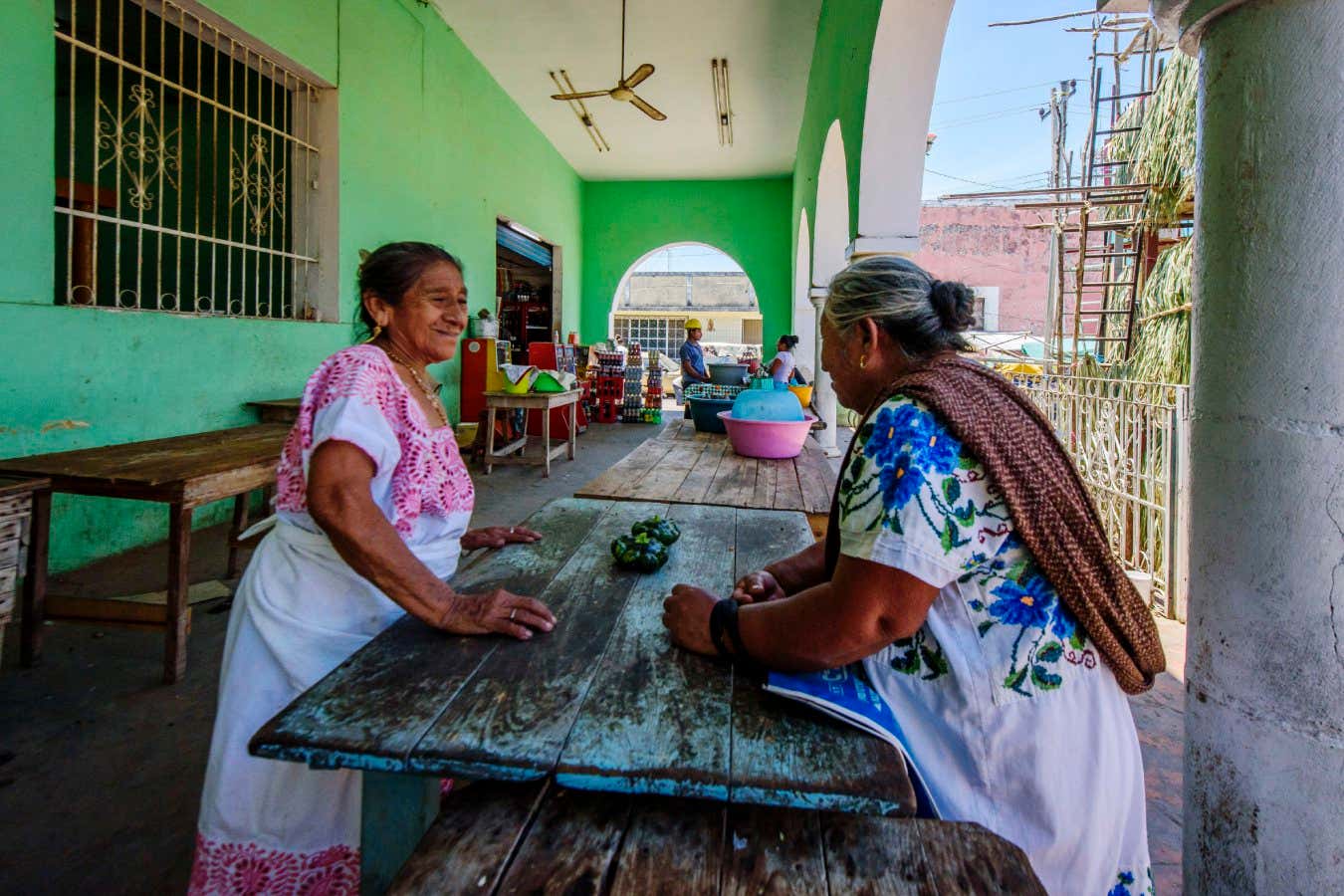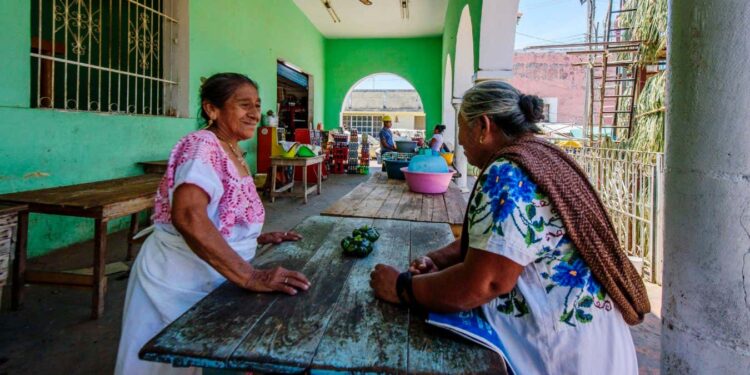
Acanceh in Mexico is home to many Maya people
Education Images/Universal Images Group via Getty Images
In the past, the quantity of zinc and other trace elements in human diets was determined largely by levels in local soils. Now it has been shown that our ancestors evolved to cope with local variations in micronutrient levels as they migrated around the world.
This might have led to some dramatic side effects – it is possible, for example, that the short stature of some peoples around the world is a byproduct of adaptation to low iodine levels. It is also possible that these past adaptations are causing some people today to get too much or too little of specific micronutrients.
“For most of human evolution, the micronutrient composition of what you’re eating has been dependent on the underlying soil,” says Jasmin Rees at the University of Pennsylvania.
Her team has scanned nearly 900 genomes of people from all around the world to find evidence of adaptation to local levels of 13 trace elements, including iron, manganese and selenium. To do so, the team looked for signs of positive selection in 270 genes linked to uptake of these elements – that is, for gene variants that became more common in specific populations because they provided an advantage.
The strongest evidence was in iodine-linked genes in Maya peoples of Central America. Similar signatures were also found in the Mbuti and Biaka peoples in Central Africa, who have a shorter stature than most people.
In 2009, it was suggested that the Mbuti and Biaka peoples’ short stature could be due to adaptation to low iodine. This is because iodine-linked genes influence thyroid hormone activity, which has an effect on growth. These peoples are also known to be less prone to goitre – enlargement of the thyroid gland due to an iodine-deficient diet – than neighbouring groups.
Because the Maya population is also very short-statured, says Rees, her findings support the idea that adaptation to low iodine affects size. She and her colleagues also point out that the rainforest soils in the Maya region are known to be low in iodine.
“This is very speculative,” she says. “We can’t say exactly what is causing these short statures, but we’re seeing, at the very least, a coincidence where there seems to be selection on iodine-associated genes in these short-statured populations.”
In the Uyghur and Brahui peoples of Central and South Asia, where soil magnesium levels are especially high, there is strong selection affecting two genes related to magnesium uptake. Some of these gene variants have previously been linked to low levels of magnesium in the body, so the team suggests these changes reduce magnesium uptake to prevent toxicity from high levels in the environment.
These are just two examples – the team found signs of positive selection related to at least one micronutrient in just about every population around the world. “We see really widespread signatures of adaptation,” says Rees.
This study is just the beginning, she says. More work is needed to pin down the effects of the many gene variants the team identified. It could turn out that people with certain variants need more or less of specific micronutrients. Rees compares it to how in countries such as the UK, people with darker skin are advised to take vitamin D all year round rather than just in the winter.
“It would be important to know if individuals from particular populations are likely to be especially in need of particular micronutrient supplements,” says Mark Stoneking at the Max Planck Institute for Evolutionary Anthropology in Germany.
“When it comes to identifying signatures of selection from genomic data, they have done state-of-the-art work,” he says. “But a lot more work needs to be done to verify that these have been truly subject to selection – some of them will inevitably turn out to be false positives.”
Topics:
Source link : https://www.newscientist.com/article/2495840-we-evolved-to-match-local-micronutrient-levels-which-may-be-a-problem/?utm_campaign=RSS%7CNSNS&utm_source=NSNS&utm_medium=RSS&utm_content=home
Author :
Publish date : 2025-09-10 16:00:00
Copyright for syndicated content belongs to the linked Source.

